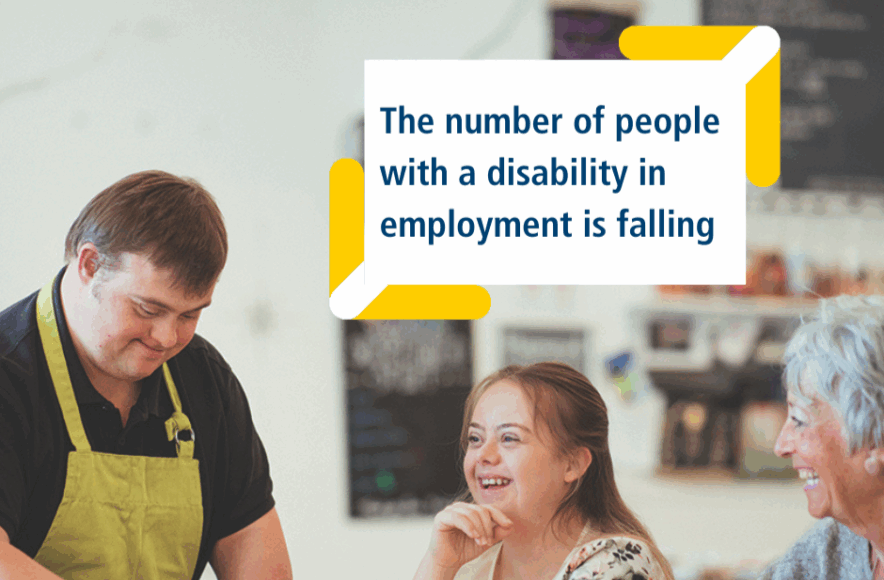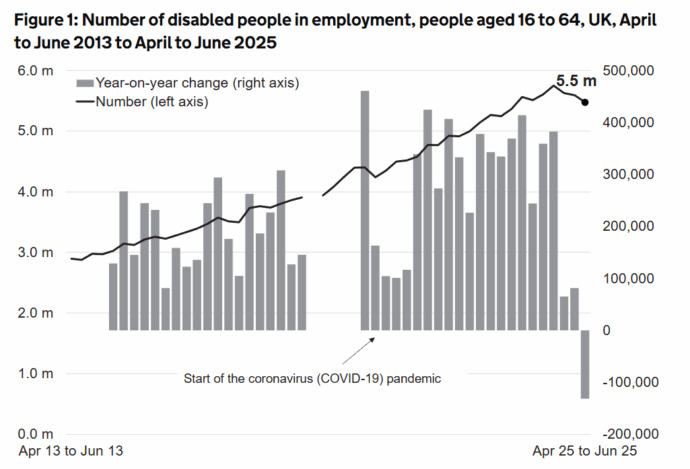Employment numbers for people with a disability are falling

People with learning disabilities and autistic people want to live full, meaningful lives and this means having equal access to paid employment yet only 5% of people with a learning disability are employed.
The latest statistics published by the Department for Work and Pensions (DWP) reveal stark inequities: People with a disability are more likely to experience low pay, fewer career opportunities and less employee involvement.

We are determined to change that and this year, United Response helped 42% of the people we support into paid employment. But we need all employers to do better and dismantle the barriers that prevent disabled people from not only thriving in work but having the opportunity to work in the first place.
Thoughts from the people we support
Jeremy* is supported by United Response and is passionate about people being able to find paid employment that maximises the strengths they can offer. He told us:
“With reference to these new findings, I worry that even with how disappointing they appear, they still don’t provide a fully conclusive picture. There will be people unaccounted for, or who may not have had the chance to voice their views, and even people who do not class themselves as disabled but are still struggling to find work,
“I think one of the main reasons behind there not being enough disabled people in meaningful work is due to recruitment and workplace systems not being based enough around getting the best out of individuals’ strengths, and I almost feel it is becoming harder to secure jobs, especially if you have employment gaps.”
Support for positive change
“I was fortunate enough to have the chance to work with Unlimited Potential to co-produce their Meaningful Employment of Autistic People project. This project led to the creation of two guides, one aimed at employers and the other at applicants, which together promote the idea of neurodiversity and in particular the talents of autistic people being a strength and asset to different organisations.
“The employers guide highlights how they can adapt their recruitment and induction processes to help autistic people to thrive. The second guide is a pathway to help autistic people see their autism as a strength and to find meaningful roles for themselves, with tips around writing applications, interviewing and preparing to join the workforce.
“It’s my hope that tools like these, alongside programmes like United Response’s Supported Employment pathways, will continue to build the confidence of people on both sides of the recruitment process, and we will see growth in employment numbers; a reversal of the figures we’ve seen published this week. Everyone has something to offer, so let’s make the most of the untapped strengths across the UK.”
*Name changed to preserve anonymity